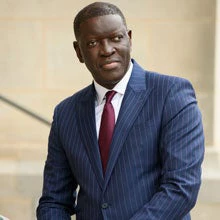 United Against Corruption
United Against Corruption
This year, as we mark International Anticorruption Day, we commemorate the passing of former World Bank Group President James Wolfensohn, who left an indelible mark on the institution’s stance on fraud and corruption. Indeed, it was his speech at the WBG-IMF Annual Meetings in 1996 that changed the way our institution addressed the “cancer of corruption.”
President Wolfensohn’s leadership led to the creation of the Department of Institutional Integrity (now the Integrity Vice Presidency, or INT) in 2001 with the mandate to help the institution protect its development resources from instances of fraud and corruption. His legacy, in part, will be the reminder of the important linkages between global anticorruption efforts and the success of the development agenda.
Nearly 20 years since INT’s founding, the anticorruption landscape has greatly evolved. Globalization trends have given rise to fraud and corruption challenges that are increasingly transborder in nature. New technologies have given corrupt actors sophisticated tools for obscuring their misconduct. Greater scrutiny of integrity risks from civil society and other stakeholders have increased the focus on the prevention and mitigation of those risks. At the same time, the growth of national and international anticorruption institutions has opened new opportunities for partnerships and knowledge sharing.
Even as the environment in which we operate continues to change, we remain as committed today to combatting fraud and corruption as ever. INT continues to respond vigorously to all allegations of fraud and corruption in Bank Group-financed operations. In fiscal year 2020 (FY20) alone, we processed around 3,000 complaints and, focusing on the complaints involving sanctionable practices and Bank Group funds, we initiated over 400 preliminary inquiries. As allegations rise but vary in both nature and significance, INT will increasingly refine its investigative approach to balance the necessary yet proportionate response to all credible allegations with the need to focus investigative resources on the cases and issues that present the most significant integrity risks or detrimental impact on projects.
Complementing our investigative work, INT provides preventive and advisory services to help mitigate integrity risks in World Bank projects based on lessons learned from our investigations. This targeted risk management analysis gives Bank operations an overview of known structural risks as well as insights into emerging trends. In FY20, INT provided advisory services and preventive support in 53 countries across 14 development sectors. INT also reviews the portfolio of operations under development to further identify integrity issues as early as possible and propose effective mitigation strategies and controls. While much has been achieved over the years, INT will continue to re-evaluate the breadth and depth of our preventive and advisory work, with a view to enhancing our impact for the institution.
This year, as the World Bank Group responded at exceptional speed and scale to the COVID-19 pandemic, INT proactively supported the institution’s emergency response, providing upstream guidance to the Bank’s operational teams, flagging common integrity risks in key sectors of intervention, and leveraging digital systems to identify integrity risks and capturing key information on projects, procurements, and allegations of fraud and corruption in all WBG-financed COVID-19 operations.
INT has also continued to strengthen the program of the Integrity Compliance Office (ICO)—which marks its own 10th anniversary this year—with the larger aim of improving integrity standards. By emphasizing integrity compliance standards as a condition for being removed from Bank Group sanctions, INT helps to improve business practices among private sector firms in the countries where we work. In FY20, the ICO actively engaged with a record number of sanctioned parties—107—supporting them as they develop and implement improved integrity policies and programs.
In addition, as the World Bank Group’s operational focus shifts to places with the greatest development needs, including areas of fragility, conflict, and violence (FCV), INT has also targeted resources toward investigating allegations of fraud and corruption in challenging FCV contexts. Indeed, in such fragile settings, the impact of misconduct can be especially devastating. Even when the World Bank Group is operating through other implementing agencies on the ground, INT will continue to foster the open, transparent, and trusted partnerships that will help preserve our ability to enforce accountability whenever and wherever needed.
As we move forward, INT’s collaboration with other organizations and anticorruption agencies will play an increasingly important role. This will include collaboration with other Multilateral Development Banks (MDBs) , building on the sound foundation we have developed over the past decade through the MDB cross-debarment agreement. But it will also include strengthening relationships with the investigative offices of donor agencies and implementing partners, national law enforcement authorities, and anticorruption civil society organizations at the global and national levels, among others.
As global fraud and corruptions trends evolve, INT will need to evolve with them and ensure that we are innovating in our processes and adapting new technologies to remain effective. Increasingly, INT is leveraging new tools that help us proactively identify integrity risks, target our resources on more impactful cases, and deliver our work more efficiently. Many of these tools leverage data analytics in ways that were not previously available, such as using Artificial Intelligence and machine learning algorithms to identify anomalies in procurement or to mine integrity risk information from large quantities of project documents or other sources of data. We will continue to explore technological solutions to help us counter ever more sophisticated and complex fraud and corruption schemes.
As we look ahead to future challenges, we can reflect on how far INT has come since its creation and know that we are well placed to continue supporting our anticorruption mission. But what will never change is the commitment and dedication we bring every day to the fight. We will continue to learn, to adapt, and to evolve in our efforts, so that the World Bank Group’s development resources can be used for the countries and people who need it most.


Join the Conversation